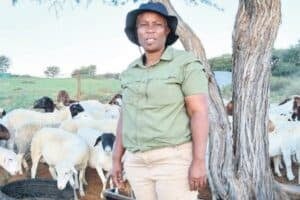Farmers say permits at stake as the Export Control Board asks for certificates

The farming community is up in arms after the announcement of the B-BBEE (broad-based black economic empowerment) certificates required for local farmers to export products.
The Perishable Product Export Control Board issued a statement last month, requesting members to submit a valid B-BBEE certificate by 1 December for their export permits.
B-BBEE ‘fundamentally racist’
Dr Theo de Jager, the chair of the board of Saai, a network for family farming, said the latest requirements of the board and the department of agriculture revealed a “fundamentally racist point of view” within which South African agriculture must perform.
“It is unclear how the department of agriculture expects family farmers to comply with black economic empowerment conditions, especially when it comes to issues such as co-ownership and co-management,” De Jager said.
“It is often a challenge for a family to farm together, let alone a stranger from another community who is forced on a family farmer.”
Draconian measures
De Jager said the South African family farmer network believed that draconian measures such as those as contained in the black economic empowerment requirements did not meet the requirements of the frameworks that define internationally accepted practices within the UN and its agencies.
He said they have entered into discussions with the World Trade Organization to bring to their attention the racist underpinnings of forced black economic empowerment measures.
“Many farmers believe that it is black economic empowerment measures that have led ANC cadres to move into central decision making and profit-making positions in government departments and state-owned enterprises such as Eskom, the SA Broadcasting Corporation, Denel and Landbank, and eventually to the implosion of these once leading institutions,” De Jager said.
Not giving ‘truck drivers’ 50% shares
Drickus Botha, regional manager for Transvaal Landbou Unie (TLU) SA in Polokwane, said the requirements were just a way for the government to force issues on farmers.
Botha said the body did not sign the B-BBEE charter.
“We never stood for it and we oppose it,” he said. Botha said farming was not always easy and asked who should apply for the certificate and who would benefit from it.
“So they expect the tractor driver to suddenly get 50% shares in a family farm business,” Botha said.
He said TLU would oppose it with all their might. Political analyst Ralph Mathekga said the people working ing on farms were South Africans and they were growing produce here.
“Now they can’t sell because of BEE compliance. What about the people they employ? It doesn’t look like a well-thought-out idea,” Mathekga added.
Policy justifiable
Mathekga has written an entire thesis on how the court deals with affirmative action and he said some of the ideas of B-BEE were just incoherent.
“If you are going to infringe on people’s rights using discrimination, let that be a coherent policy showing you have a programmer to achieve those policies’ goals,” he said.
Mathekga said if the policy goals were only aimed at the point of requiring compliance from people they did not amount to policy.
“Some policies put in by government were not even justifiable and lack logic and were not rational,” he said.






